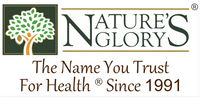Organic, natural, certified organic… There are so many different labels on our food products these days. When it comes to buying organic, how do you know you are truly getting organic food in Singapore?
As there is no official organic certifying body in Singapore, most organic products sold here have been organically certified overseas by international associations. However, as these certifications are not mandatory, suppliers may claim and label their produce without any certifications. This can lead to mislabelling and mis selling if not checked by the authorities.
This is why we aim to educate our consumers about what it truly means to be organic, so they can understand the differences and what they are buying.
Following CODEX Guidelines
In Singapore, food can be labelled as ‘organic’ if it complies with Codex guidelines for labelling of organic foods.
The Codex Commission is a United Nations and World Health Organisation body that has released a set of guidelines for organic standards to regulate the global organic industry. It is an association that seeks to protect the health of consumers and monitor fair practices in the food industry.
With the Codex guidelines, it covers the growing, storing, processing, packaging and shipping of food with these standards:
- Avoidance of synthetic chemical inputs such as fertilisers and pesticides, irradiation and the use of sewage sludge
- Avoidance of genetically modified organisms
- Farmland that has been free from prohibited chemical inputs for a number of years
- Following specific requirements for feed, housing, and breeding for livestock
- An audit trail of detailed written production and sales records
- Strict physical separation of organic products from non-certified products
- Periodic on-site inspections
Singapore Standards for Organic Food
Meanwhile, our own local regulations in Singapore only states that organic food in Singapore must be certified organic by obtaining a certification from third party certifying bodies overseas.
This means that when it comes to organic food, as consumers, we have to accept the food labelling in good faith. This can give rise to mislabelling or uncertain claims of organic food without proper certifications.
The Singapore Food Agency (SFA) may request for valid organic certifications as and when required. SFA also does periodic checks and investigations on food products. Products could be found to be falsely labelled under section 17 of the Sale of Food Act to be false, misleading, deceptive or likely to create the wrong impression of the food’s value, quality and safety.
The only organic standard that has been introduced so far is the Singapore Standard SS 632:2017 for Organic Primary Produce for indoor and urban farming in our country.
These are just some of the basic standards we have in Singapore for our organic food, but is it enough? As the demand for organic food grows in Singapore, we hope to see more organic standards introduced for the benefit of our consumers and the industry.
International Organic Standards and Certifications
Thus, for now in Singapore, we will continue to follow the international organic standards as set in place by well-known organic certifying bodies, such as IFOAM, NASAA and USDA.
Here are some of them:
IFOAM
Founded in 1972, IFOAM is a membership-based organization to bring sustainability to agriculture across the globe. The IFOAM Accreditation Program was launched in 1992, with the IFOAM Standard and the IFOAM Standards Requirements (COROS). The Organic Guarantee System (OGS) of IFOAM Organics International seeks to monitor the view of what is organic and what is not.
Likewise, the IFOAM accreditation ensures that organic certification bodies worldwide meet up to IFOAM’s international norms. IFOAM Accreditation is the only fully international accreditation program for certification bodies active in organic agriculture.
NASAA
Similarly, National Association for Sustainable Agriculture Australia (NASAA) is Australia’s organic industry association related to all market and industry developments, education, policy and advice for the organic food industry. The NASAA certification is Australia’s most internationally recognised organic certification label.
USDA
USDA Organic certification ensures that farms or handling facilities comply with USDA organic regulations. USDA certified organic foods are grown and processed according to federal guidelines regarding soil quality, pest and weed control, livestock and use of additives.
Most farms and suppliers growing organic products must be certified, including those who sell more than $5000 in organic products per year, and vendors that handle and sell products online.
100% Organic Assurance for Nature’s Glory
At Nature’s Glory, we are a trusted retailer of organic food in Singapore. We abide by a 100% Organic Assurance standard for the health of our customers. We are organically certified as a NASAA Certified Organic (NCO) operator under the registration number 8131P in Singapore.
Some of our products also carry the NASAA mark that are independently audited by third party associations to international standards. NASAA certifications ensure that crops are grown organically without chemicals and pesticides, and this includes harvesting, processing, packaging, shipping and storage of the products.
Furthermore, we are committed to ensuring that we do not sell products with any GMOs, radiation or microwave pulses. Our warehouse is also not fumigated with any chemicals to kill pests and insects, which is a common practice for the food industry. We are truly dedicated to the concept of being a specialty Organic Grocer and strictly adhere to offering great quality organic products for all.
Do shop with us for organic products at our online ecommerce store.

